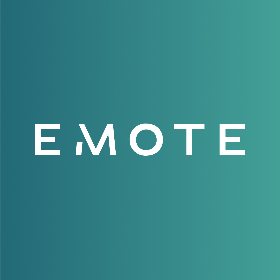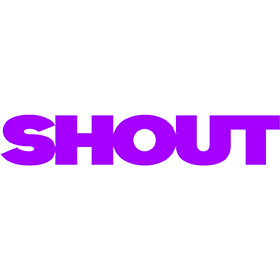
Social Media Marketing Guide for Schools & Educational Institutions
As per Statista’s data from January 2022, the top four platforms dominating the digital landscape are Facebook, YouTube, WhatsApp, and Instagram. These powerhouses hold immense potential for schools and educational institutions seeking to utilize the power of social media marketing.
So.. Ready to wield social media as your mighty weapon on the battlefield of the education industry?
Benefits of Social Media Marketing for Education Sector
When it comes to digital marketing strategies for schools, it is essential to consider the specific platforms that will resonate with your target audience.
In case the goal is to reach students (possibly referring to Gen Z), taking note of the top five social media platforms they frequently use is a good call. By understanding their preferences, it is possible to focus your efforts on those specific social media platforms and to tailor your content and messaging to align with the behaviors of Gen Z students. The same is true for reaching out to parents.
Once you have identified the platforms, the next step is to establish a consistent posting strategy. Consistency is the key in growing your social media presence and engaging with your audience effectively. To achieve this, it is recommended to create a social media plan and stick to it. For example, you might establish a goal of posting 2-3 images per week on Instagram and Facebook, showcasing various aspects of school life such as events, student achievements, and campus highlights, plus a video per week on platforms like Snapchat and TikTok.
Additionally, it is beneficial to know about each social media platform. In that point, working with education marketing agencies is a way to maximize your social media efforts for schools.
Keep reading for details.
First and Foremost: Create Persona
In digital marketing activities within the education sector, creating a persona refers to identifying your target students and parents, allowing you to tailor your messaging, content, and approach. Additionally, it provides valuable insights into the preferences and values of those who expressed interest in your school.
During the persona creation process, it is crucial to consider various factors such as demographics, interests, and needs of the students you aim to enroll in your school & educational institute. That includes age, gender, location, family income, academic level, and extracurricular interests. By gathering this information, you can develop a clear and detailed profile of your audience, enabling you to customize your marketing strategies accordingly.
And yes, understanding your perspectives’ characteristics and aligning your messaging and content leads to more effective engagement and success in achieving your goals. Here’s an example:
Major Tom developed a comprehensive social media strategy for JAYU, a Canadian charity focusing on human rights and arts. By establishing content pillars, posting cadence, and a consistent tone of voice, they enhanced JAYU’s social media presence, resulting in significant community growth and increased engagement. Their approach highlights Major Tom’s capability in utilizing social media to amplify nonprofit organizations’ messages, making them an excellent partner for educational institutions looking to strengthen their social media marketing.
Organic Growth or Paid Advertising: Have to Choose Your Side?
Actually, you can dance at two weddings when it comes to marketing in the education sector.
As marketing professionals already know, organic traffic focuses on building a strong online presence and attracting an audience through content creation, social media engagement, and search engine optimization (without ads). This kind of effort concerns creating community engagement and relevant & consistent content for the target audience.
As a part of digital marketing practices for the education sector, organic growth also refers to developing brand awareness and nurturing long-term relationships with students, parents, and stakeholders.
As for that, paid advertising, operated through Google Search, Instagram, Twitter, Facebook, and TikTok sponsored content, allows one to reach a wider audience quickly and strategically. Paid ads can increase visibility, drive website traffic, and generate leads by targeting specific demographics, interests, and areas. In the education sector, it’s a good call to use paid ads during enrollment periods or when promoting specific campaigns or events.
Bottom line: Rather than favoring one over the other, a comprehensive marketing strategy requires both methods. This integrated practice allows you to create a reputable brand through an ultimate SEO strategy for schools while using paid advertising to maximize visibility and accomplish campaign goals.
Don’t Underestimate the Power of TikTok & Video Marketing
Didn’t you assume not addressing TikTok when discussing reaching the Gen Z audience? It’s time.
Introducing Dianne Domenech-Burgos, the Chief of Staff and Assistant Head of School for Strategic Planning. She's a leader who embodies non sibi in all aspects of her work. Learn about her go-to coffee order, dream vacation spot, and what surprised her most about Dr. Kington. pic.twitter.com/kyK3N0s3Pc
— Phillips Academy (@phillipsacademy) April 19, 2023
TikTok (and video marketing in general) has become an influential platform among Gen Z users and the platform offers massive potential for educational institutions to connect with this demographic. With its short-form videos, creative features, and viral trends, TikTok provides a remarkable option to engage students interactively. Also, TikTok videos can be easily shared on other social media platforms, like Instagram, Twitter, or YouTube, allowing you to repurpose your content and extend its reach.
We also know that a recent survey of teenagers found that TikTok is now one of the most popular social media platforms among teens, while Facebook usage among teens has declined significantly (that means the Oscar goes to video platforms.)
Some artists work with brush and canvas. For visual and street artist Cedric Douglas, this year’s Mudge Fellow, his medium is whatever tells his message best, whether that’s a roll of police tape, a battered tambourine, or a rose. More: https://t.co/b5f3Fa4yYR pic.twitter.com/XguRy1rUri
— Groton School (@GrotonSchool) January 27, 2023
Beyond TikTok, a range of video-sharing platforms allows educational organizations to showcase their unique teaching methods and innovative approaches. These video-sharing platforms, such as YouTube, Vimeo, or educational-specific platforms, provide educational organizations with opportunities to engage with their target audience in a visually compelling manner.
Social Media Marketing Strategy for Private Schools
The way private schools approach digital marketing has been transformed by social media, no doubt. It’s not unexpected when schools count on social media platforms to precisely touch their target audience – like the other institutions nowadays.
Congratulations to the Class of 2023 for already being accepted at more than 160 colleges and universities! From MIT to Notre Dame, California Berkley and the University of Hawaii, we can’t wait to watch the Class of 2023 Be GreaT all over the country! Trinity Forever! pic.twitter.com/FY6WhH20qn
— Trinity High School (@GoRocks) May 3, 2023
Private schools may ensure that their marketing efforts reach potential students and parents looking for private schooling through the use of modern targeting tools. We all know that social media platforms allow corporations to raise brand awareness and differentiate themselves from competition. In this way, private schools can build a distinct brand identity that resonates with their target audience by consistently highlighting their unique educational approaches and student achievements.
Students warmed up a cold and windy winter evening with food, dance, and music, celebrating the school’s fifth Cultural Day, and the first since 2020, on January 14. Read the full story: https://t.co/m4EFJQRRWF pic.twitter.com/HB3w7WnsyA
— Groton School (@GrotonSchool) January 17, 2023
In addition, social media is a powerful tool for promoting content, blog posts, articles, videos, virtual tours, and other educational resources that private schools can use. While schools can locate themselves as thought leaders in the education sector, content marketing also delivers them to attract the attention of prospective families who value a high-quality education. That means content marketing helps to prop the school’s reputation and establish credibility with its target audience.
As part of Trinity’s classroom travel opportunities, our students spend four weeks studying at Colegio Santa Ethnea in Bella Vista, Buenos Aires, living with a host family while attending classes. At Trinity, the world is your classroom! pic.twitter.com/oUKMz8wQRe
— Trinity High School (@GoRocks) June 12, 2023
More specific?
Create Hashtag for Your School
A unique school hashtag not only develops and strengthens your organization’s identity, but it additionally builds community and encourages conversations. Furthermore, it allows you to track and evaluate engagement, providing useful insights for improving your social media strategy. Hashtags also encourage students, parents, alumni, and professors to actively participate and contribute to a feeling of community.
Build a Platform for Career Planning
Building a platform for career planning on social media is like adding fuel to the fire of private schools’ success in digital media. In other words, it’s a game-changer that can take learners from zero to heroes in their academic journeys.
The exchange of ideas and experiences on these platforms fosters a vibrant community. Students can explore their passions and learn from those who have walked the path before them by enrolling in relevant career-oriented courses. Together, they can build a powerful network that will help them achieve their career goals.
Publish Student Testimonials
When it comes to decision-making, testimonials hold the power of persuasion.
It’s not surprising when considering testimonials can provide valuable insights into the school’s culture, academic programs, and student life. Testimonials working like social proof for private schools can also help to address any concerns that prospective students and their families may have.
When collecting testimonials, it is noteworthy to get them from a variety of sources – current students, alumni, community members and so on. – It is also necessary to make sure the testimonials are authentic and representative of the school’s experience. In addition, testimonials should be placed in prominent spots on your website and marketing materials so that prospective students can effortlessly find and read them.
Share about Upcoming Events and Activities
Social media is a great way to keep your (potential & current) students in the loop about upcoming events. You can use social media to promote the event beforehand, share live footage, stories, and posts during the event, and recap the highlights after the event.
While doing so, using eye-catching visuals, dynamic and concise language, and related hashtags encouraging attendees to share about the event is a good call.
Social Media Marketing Strategy for Educational Institutions
Let’s start with a statistic: A survey conducted by the Pew Research Center about teens, social media and technology found that 72% of college students use social media to learn about colleges and universities. It’s possible to say that it can be true for all types of educational institutions.
There is no doubt that social media and related digital marketing efforts are the most influential tools available for academic institutions to reach prospective students, engage current students, and connect with the new ones.
By posting on a daily basis on social media platforms to maintain visibility and increase brand presence (at that point you may need to get consultation from experienced social media marketing agencies), you can position your educational association as a dominant player in the education sector while highlighting the strengths.
More specific? Here are a piece of content ideas you may want to consider:
Provide Virtual Tours
Having a virtual tour to showcase your educational institute to prospective students and parents is crucial in today’s digital era. It allows you to provide an immersive experience that goes beyond words, offering a visual representation of your campus and facilities.
Through photos, videos, 360-degree views, and virtual walk-throughs, it is possible to create a comprehensive portrait of the institute.
That kind of technology possibly builds trust and offers convenience and accessibility while eliminating barriers and obligations to investing further time and effort. Additionally, a virtual tour helps you showcase the unique features that set the place apart, highlighting state-of-the-art classrooms, laboratories, sports facilities, and other amenities.
Here is a great example from Middlesex:
Invest in Community Building
The power of community building extends far beyond the bounds of a mere social marketing strategy. It creates a network of support among scholars and cultivates an environment to exchange ideas.
By building a community of learners & scholars, educational institutions breathe life into their society, amplifying the diverse views, accomplishments, and talents that make it truly extraordinary.
And… How can you build a community among learners through social media? Some tips:
- Create groups or channels for discussions.
- Schedule virtual events and activities and encourage interaction.
- Support peer-to-peer collaboration.
- Integrate gamification in marketing for engagement.
- Establish mentorship programs for guidance and growth.
Share Students’ Experiences
The power of peer influence cannot be underrated. When students share their positive experiences on the official account of the institute, it inspires and charms prospective students to envision themselves as part of the institution’s vibrant community.
This kind of social proof allows perspectives to learn about the personal growth, deep friendships, and unforgettable moments shared by current students.
#2023SeniorProfile Unapologetic Excellence:
— Morehouse College (@Morehouse) June 8, 2023
Jeremiah Hickey ’23 is a #PhiBetaKappa music composition major from Cataula, GA. Post-graduation, Jeremiah will teach middle school music courses while continuing his studies in music composition & jazz piano at the graduate level. pic.twitter.com/CcaaJ4bGOZ
Share Success Stories
Success stories from your institution can demonstrate the definite outcomes that it facilitates. These stories can be about academic achievements, community contributions, personal growth, or career wins. By sharing these kinds of stories, celebrating the individuals involved, reflecting on the collective excellence of the institution, and creating a powerful connection with your audience is possible.
#MorehouseScholarSpotlight Congratulations to recent Morehouse alumnus Trenaj Mongo ’23 on being selected as one of 10 students selected to the 3rd cohort of the NAACP Legal Defense Fund (LDF) Marshall Motley Scholars! (@naacp_ldf)#MorehouseIsEverywhere #Morehouse #LDF #NAACP pic.twitter.com/2ZQTavixkW
— Morehouse College (@Morehouse) June 10, 2023
Be Highly Responsive
One effective idea to enhance responsiveness and engagement with prospective leads is the integration of chatbots. By implementing chatbots, you can ensure quick responses and efficiently engage with your target audience, ultimately resulting in lead generation.
By implementing chatbots, you can provide instant assistance and address inquiries promptly, even outside of regular business hours. These automated systems can answer frequently asked questions, provide information about your educational offers, programs and so on, and guide both students and parents through the initial stages of their journey.




















